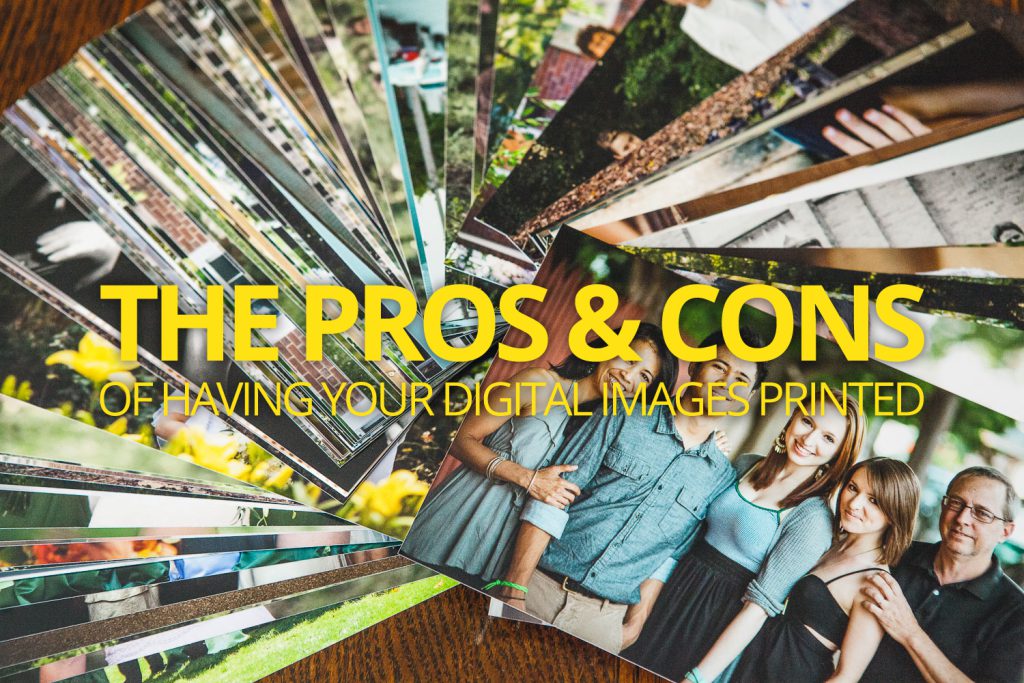We live in a digital world. Our digital lives are cluttered with acquaintances, opinions, advertisements and political messages. There is vastly more flying by than we can possible take in. Even what we post ourselves fades from our memory faster than the cup of coffee we had together a couple weeks ago. But at the same time, it delivers such an incredible convenience it’s hard to argue that it’s not a fair trade off. We can stay loosely connected to far more people than we ever could before; we can expose far more people to our ideas or our work; we can trounce the productivity of our grandparents near effortlessly, all thanks to the digital revolution. I can definitely understand the allure of simplifying your real life, by dumping as much of it our digital life as possible. I, myself, practically refuse to read books in a physical form. I’d just rather a digital mess than a real life one.
But ask yourself this, would you be content to just take a photo of your grandmother’s old jewelry and then pawn the real thing off? Or, would you prefer to keep it in your jewelry box where you know you’ll see it every time you put on jewelry in the morning? I’m betting you want to keep that old jewelry because you wouldn’t be content to simply know you could look at it anytime you want. You want to know you will look at it. It’s not a perfect analogy, but it’s very much like whether or not you want a printed copy of a photograph, or just want to keep it on your phone or computer. So here are the pros and cons of having your photographs printed.
We’ll start with the cons:
Con: It costs more money.
Unquestionably, this is the most important reason people give for not having their images printed. You just paid a few hundred dollars or more for some professional portraits, and you don’t want to spend another $75 for a nice print. You’ll set it as the desktop on your computer, or the background on your phone, and that will be good enough. Or, you it just cost you $0 to take a photo with your phone, and you can’t see spending money to have it printed, when you can clearly see it on your phone whenever you want. The cost associated with having your images printed is clearly a negative thing.
Con: You have to keep track of it.
If you’ve noticed the proliferation of public storage units, you could reasonably assume an awful lot of people have too much crap around. And you’d probably be right. Clutter piles up pretty quick. Kitchen appliances for every little task, tools and gadgets that only last a few months or only get used once, unread magazines and catalogs stacked as far as the eye can see. Having your images printed (especially if taking those pictures yourself has become completely ubiquitous) runs a risk of simply adding to all that clutter. What are you supposed to do with all those prints? For some people, that’s an obvious downside.
Con: It has to be cared for or else it will degrade.
Photos will last a really long time, but only if they’re properly cared for. That means not only are you paying for a print, but you’re also going to have to put energy, and probably money, into caring for it. Printed photographs will degrade from heat, pollution, moisture and even framing materials themselves can cause damage. If you intend for your print to still around for your grandchildren or great grandchildren to look at, you’ll have to think twice about what you put it in, where you display it, what kind of light illuminates it, and ultimately, how you store it.
Now, our pros start to look like the flip sides of our cons:
Pro: It exists in the real world
For the same reason keeping track of your prints might be seen as a con for some people, if you really think about it, it’s more like a pro. By inviting an image you love into the real world of clutter and stuff you have to keep track of, you also give some portion of your care and attention to that image. In some small way, you’re required to continually invest yourself in it. Like your grandmother’s jewelry, seeing it regularly is better than just being able to see it whenever you happen to remember it exists. And isn’t this usually the reason you might hire a professional, or take a photo yourself? Because something is important to you and you want it to hold a prominent place in your mind. What kind of prominence do we give to something that asks nothing of us in return? Almost none. So having an image printed, keeping track of it, and caring for it, increases its personal value and underscores why you have the picture in the first place.
Pro: You can show off your photos without “showing off your photos”
Posting your photos on Social Media for all to see is nice for people to stay in touch with you, but do it too much and it’ll look like you’re showing off. But you do want to show off, just to people who really know and care about you. You know where those people go that other people don’t? You house, your apartment, your office. Images hung on your walls will pique your friend’s and family’s interest all on their own. They’ll start conversations for you. People don’t ask to browse the images trapped on your phone. You have to volunteer your phone for that, which is usually awkward at best, and desperate at worst. Having your images printed allows you to place them somewhere they will be seen by people who matter to you, but doesn’t require you to awkwardly demand their attention.
Pro: It’s technologically durable.
Where are the images that were stored as BMP files on floppy disks back in 1920? Right, there weren’t any floppy disks yet, and BMP files were still yet to become a horrible thing. As you know, technology is advancing quite rapidly. Our current standard “JPEG” image files have been around for a long time and are quite good… but another 100 years? I wouldn’t bank on it. When you store your images digitally, you’re betting that technology will continue to be available to view them, but there’s no guarantee of that. In fact, it seems probable that at some point, the digital images you have stored will eventually be defunct, whether because of a major catastrophe or a major advancement. In either case, properly cared for prints will still exist in the real world, hopefully still reminding you what really matters.

